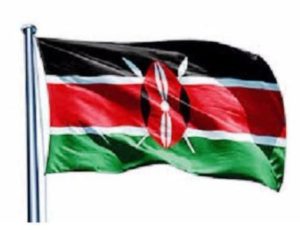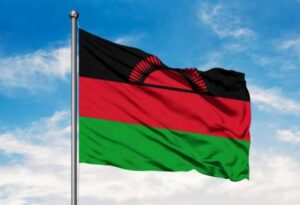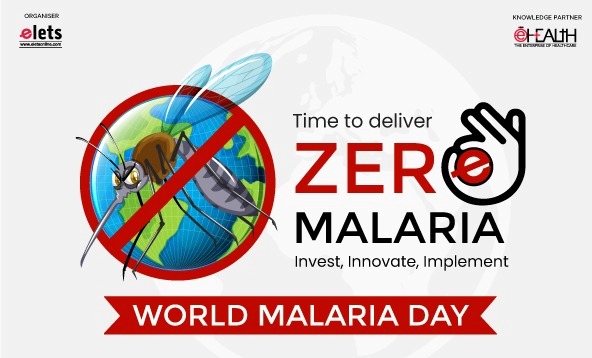World Malaria Day 2023: WHO underscores vaccine benefits
* Pharma company sets agenda for Nigerian government * Africa records unprecedented vaccine demand
Marking World Malaria Day, the World Health Organization (WHO) is issuing a call for increased implementation of new and existing interventions to save lives from malaria.
A Press statement from the organization says Nearly 1.5 million children at high risk of illness and death from malaria in Ghana, Kenya and Malawi have now received their first dose of the first malaria vaccine, RTS,S/AS01 (RTS,S), thanks to an ongoing pilot programme coordinated by WHO.
The malaria vaccine pilots, launched in 2019, are increasing equity in access to malaria prevention for the most vulnerable and are saving lives. If implemented broadly, WHO estimates that malaria vaccines could save the lives of tens of thousands of children each year.
“We have the tools to drive down malaria, a package of interventions that includes vector control, preventive medicines, testing, and treatment,” said Dr Tedros Adhanom Ghebreyesus, Director-General of WHO. “These are joined by a safe and effective malaria vaccine, which could save the lives of tens of thousands children every year. With sustained investment and scaled-up efforts to reach those most at risk, malaria elimination in many countries is in reach.”
The World Malaria Day 2023 is being marked under the theme “Time to deliver zero malaria, invest, innovate, implement.” Within this theme, WHO is urging more effective implementation of available tools and strategies to prevent, diagnose and treat malaria, particularly among marginalized populations.
According to the 2022 edition of World malaria report, released last December, there were an estimated 619 000 malaria deaths globally in 2021 compared to 625 000 in the first year of the pandemic. In 2019, before the pandemic struck, the number of deaths stood at 568 000. The report reads further:
“Malaria cases continued to rise between 2020 and 2021, but at a slower rate than in the period 2019 to 2020. The global tally of malaria cases reached 247 million in 2021, compared to 245 million in 2020 and 232 million in 2019.
“Following a marked increase in malaria cases and deaths in the first year of the COVID-19 pandemic, malaria-affected countries redoubled their efforts and were able to mitigate the worst impacts of Covid-related disruptions to malaria services,” said Dr Tedros Adhanom Ghebreyesus, WHO Director-General.
“We face many challenges, but there are many reasons for hope. By strengthening the response, understanding and mitigating the risks, building resilience and accelerating research, there is every reason to dream of a malaria-free future.”
Insecticide treated bednets (ITNs) are the primary vector control tool used in most malaria-endemic countries and, in 2020, countries distributed more ITNs than in any year on record. In 2021, ITN distributions were strong overall and at similar levels to pre-pandemic years: of the 171 million ITNs planned for distribution, 128 million (75%) were distributed.
The report also reveals that eight countries (Benin, Eritrea, Indonesia, Nigeria, Solomon Islands, Thailand, Uganda and Vanuatu) distributed less than 60% of their ITNs, and seven countries (Botswana, Central African Republic, Chad, Haiti, India, Pakistan and Sierra Leone) did not distribute any ITNs.
Seasonal malaria chemoprevention (SMC) is recommended to prevent the disease among children living in areas with highly seasonal malaria transmission in Africa. In 2021, further expansion of this intervention reached nearly 45 million children per SMC cycle in 15 African countries, a major increase from 33.4 million in 2020 and 22.1 million in 2019.
At the same time, most countries succeeded in maintaining malaria testing and treatment during the pandemic. Despite supply chain and logistical challenges during the pandemic, malaria-endemic countries distributed a record number of rapid diagnostic tests (RDTs) to health facilities in 2020. In 2021, countries distributed 223 million RDTs, a similar level reported before the pandemic.
Artemisinin-based combination therapies (ACTs) are the most effective treatment for P. falciparum malaria. Malaria-endemic countries delivered an estimated 242 million ACTs worldwide in 2021 compared to 239 million ACTs in 2019.
Pharma company sets agenda for Nigerian government
 Commemorating the World Malaria Day 2023, a Nigerian Pharmaceutical company, St Racheal’s Phama, urged the country’s newly elected government to initiate a Free Malaria Management Programme as part of the palliative measures being considered to cushion the effects of the proposed removal of fuel subsidy in the country.
Commemorating the World Malaria Day 2023, a Nigerian Pharmaceutical company, St Racheal’s Phama, urged the country’s newly elected government to initiate a Free Malaria Management Programme as part of the palliative measures being considered to cushion the effects of the proposed removal of fuel subsidy in the country.
In a Press Release signed by its Chairman, Pharm. Akinjide Adeosun, the company described the suggested malaria management initiative as the least but urgent step the government could take to address the huge burden of malaria in the country.
Citing WHO statistics, the company said malaria, being the most prevalent disease in the country, deserves a priority attention by the new government using the window of opportunity offered by the proposed fuel subsidy palliative programme. The statement further reads in part:

“While we are in support of cash distribution to indigent Nigerians, initiating a free programme that will offer free malaria management to everyone in all parts of the country will not only impact positively on the people’s health but will also drastically reduce unnecessary death being recorded every year from the disease, thereby improving life expectancy in Nigeria.’’
“According to the 2021 World Malaria Report, Nigeria had the highest number (27%) of global malaria cases and the highest number of deaths (32%) of global malaria deaths. The country is also reported to account for 55.2% of malaria cases in West Africa.
“Unfortunately, the nation’s responses so far, have not shown a remarkable progress and the required political will to achieve a malaria-free Nigeria and the goal of reducing its morbidity to less than 10 percent parasite prevalence and mortality of less than 50 deaths per 1000 as enunciated in the 2021-2025 National Malaria Strategic Plan (NMSP).’’
“As a corporate entity with a mandate of promoting good health in Nigeria and the African continent through information, education, manufacture, distribution, marketing and supply of quality pharmaceutical brands we at St. Racheal’s Pharma, are in resonance with the call by the World Health Organisation (WHO), on countries to build a more resilient programmes to address the menace of malaria.
“Considering Nigeria’s huge burden of the disease, the theme for this year’s World Malaria Day ‘Time to deliver zero malaria, invest, innovate, implement’ cannot be ignored.
“This is why we urge the new government of President Bola Ahmed Tinubu to act swiftly and adopt a more radical approach by instituting & implementing a compulsory free malaria management initiative, to achieve the nation’s strategic plan.”
Impact of malaria vaccine in Kenya
 Caregivers, health leaders and community health volunteers reflect on malaria vaccine implementation and how the new tool is reaching children at risk with life-saving malaria prevention.
Caregivers, health leaders and community health volunteers reflect on malaria vaccine implementation and how the new tool is reaching children at risk with life-saving malaria prevention.
Africa’s Lake Victoria is the world’s second largest freshwater lake and its largest tropical lake. This awe-inspiring ecosystem supports a stunning variety of bird, aquatic and animal species. Unfortunately, the same ecosystem is also an ideal breeding ground for mosquitoes that carry malaria.
Malaria experts refer to the areas around the lake’s shore as Kenya’s “lake-endemic” region. Most people there have endured malaria infections, and many have suffered terrible losses, including children, malaria’s most common and vulnerable victims.
“When I was growing up, I suffered from several attacks of malaria, and I’ve seen children suffer from permanent disabilities,” says Vivienne, a mother of 5 from Chemelil market, a rural village outside Kisumu town. “My 3 oldest children suffer from frequent attacks of malaria. When that happens, they lose their appetite, suffer from fever, diarrhea, and vomiting, and become very weak.”
This life-long experience with malaria is the reason Vivienne and other mothers throughout this part of Kenya were enthusiastic about the arrival in 2019 of the world’s first malaria vaccine, RTS,S/AS01 (or RTS,S).
That year, the vaccine became available in parts of Kenya, as well as Ghana and Malawi, in a pilot introduction through the national immunization programme, under the WHO-coordinated Malaria Vaccine Implementation Programme (MVIP). The purpose of the pilots was to evaluate the public health use of the vaccine, including whether caregivers would bring their children to clinics for the 4-dose regimen and the vaccine’s impact on reducing childhood illness and death from malaria in routine use.
Nearly 4 years on, more than 1.4 million children have received the vaccine across the 3 pilot countries, of which, 400,000 children in Kenya have received at least their first dose.
“Whatever we were using before, we reached a point where the burden [of malaria] plateaued, and we needed an additional tool,” explained Dr Gregory Ganda, Kisumu County Executive for Health.
More than 3 years on, the vaccine has become an important and life-saving additional tool alongside other malaria interventions, such as insecticide treated bed nets, indoor residual spraying, preventive treatment for pregnant women, and effective malaria medications.
Since the vaccine was introduced in parts of Kenya, hospitalizations for children under 5 for severe malaria have fallen substantially, and there is a drop in child deaths.
“Over the past 3 years, we’ve witnessed a significant reduction in pediatric admissions from malaria,” adds Dr Ganda. “It’s a great feeling as a doctor when you are considering closing a ward because of lack of patients.”
Beyond Kenya, demand for the malaria vaccine is unprecedented. At least 28 countries in Africa plan to apply for Gavi support to deploy the vaccine. Initial supply is limited and will be allocated according to a framework that prioritizes initial doses to children living in areas of greatest need. As supply increases to meet demand the vaccine will reach more children, within and across endemic countries. Increasing supply to reap the full benefits of the vaccine is a priority for WHO, Gavi, UNICEF and partners
Mothers in Malawi value first malaria vaccine

Gilimbeta took her daughter Lusitana to a rural health facility on the outskirts of Lilongwe, Malawi, for vaccination. At the time, she did not realize that her infant daughter was being written into history: the 5-month-old was the first child to receive the world’s first malaria vaccine (RTS,S/AS01 or RTS,S) as part of the WHO-coordinated Malaria Vaccine Implementation Programme.
The launch of the malaria vaccine pilot implementation in Malawi, followed by introductions in Ghana and Kenya soon afterward, was a breakthrough – this was the first time that a malaria vaccine would be provided to protect children from one of the greatest risks to their health through the national immunization programme.
Today, Lusitana, age 4 years, is an energetic and engaging child. She loves to play with her home-made dolls. She recently started nursery school and is excited to sing the “calendar” song she learned about the months of the year.
“Since she got her vaccine, she’s never had malaria, and she’s a happy and healthy child,” Gilimbeta said. Gilimbeta is now expecting her 3rd child, who she anticipates will follow her sister in receiving the full 4-dose malaria vaccine regimen.
In a country where malaria remains a leading cause of child illness and death, Lusitana’s future could have been very different.
“In Malawi, malaria is quite prevalent, said Dr Mike Chisema, Immunization Manager and Deputy Director, Preventive Health Services, Malawi Ministry of Health. Most children will experience multiple episodes of malaria per year, any of which could develop into life-threatening severe malaria.
On a recent morning, Grace walked in Gilimbeta’s footsteps. She left her home early to start the 40-minute walk to the health facility, traveling down a single-lane dirt road surrounded by maize fields. With her youngest daughter, Beauty, swaddled on her back, Grace greeted neighbors and friends along the way, avoiding the puddles left behind by the previous night’s heavy downpour.
Despite the risk of showers, she was determined not to miss Beauty’s monthly health check to have her weighed, examined and vaccinated. On this day, Grace had brought Beauty to receive her 3rd dose of the malaria vaccine.
“I’ve been affected by malaria, and so have my older children,” explains Grace. “Every time a child or parent is sick, the whole house is affected – I can’t go to work, my husband can’t go to work. I can see a big difference [since Beauty was vaccinated]; the other children get [malaria] but [Beauty] doesn’t.”
On her way to the clinic, Grace stopped to chat with Wezzie Phiri, a community health worker. In addition to her work at the health center, Wezzie is responsible for visiting families like Grace’s at home to provide health information and ensure that children keep up with the routine immunization schedule.
In the years since the malaria vaccine was first introduced in the area, Wezzie has noticed a difference in the community.
“It has been very helpful for the community and the facility,” Wezzie said. “Since most of the parents are able to take their children to receive the malaria vaccine, the number of children who get sick with malaria and come here to the health center has really reduced.”
Becoming routine
In late November 2022, the Government of Malawi announced plans to expand the use of the malaria vaccine across the 11 districts that have taken part in the pilot introduction.
The decision followed the October 2021 WHO recommendation for use of the malaria vaccine to prevent malaria in children, as well as Malawi’s own positive experience.
In his keynote remarks announcing the expansion, the Honorable Secretary for Health for Malawi, Dr Charles Mwansambo, said malaria vaccination “has an important role in the history of the fight against malaria, not only in Malawi but globally.”
About 4 years on, more than 400 000 children in Malawi have received at least one dose of the malaria vaccine. When used alongside other malaria prevention tools, including insecticide treated bednets, the vaccine has been shown to substantially reduce deadly severe malaria, and to reduce all-cause child mortality.
“Malaria kills, but there is now a vaccine that we know works and can be implemented. If all the doses are taken, we know it prevents the severe forms of malaria,” explained Dr Don Mathanga, who leads the evaluation of the public health use of the malaria vaccine in Malawi, at the University of Malawi’s College of Medicine..
Unprecedented demand in Africa
More than 1.4 million children have been reached with the malaria vaccine across the 3 pilot countries since 2019. The malaria vaccine has been shown to be safe and effective and has substantial public health impact. If implemented broadly, the vaccine could save tens of thousands of lives each year.
Demand for the malaria vaccine is unprecedented: at least 28 countries in Africa plan to apply for Gavi support to introduce the vaccine. WHO and partners are working to increase vaccine supply as rapidly as possible to protect more vulnerable children and save more lives.
– With WHO reports

